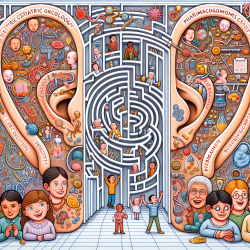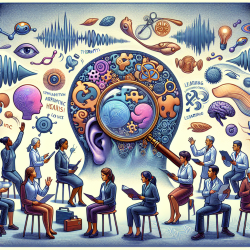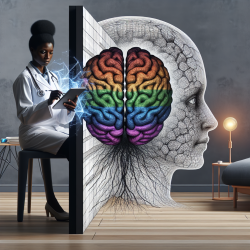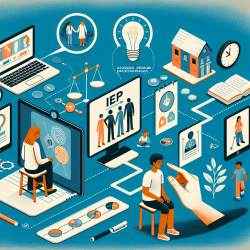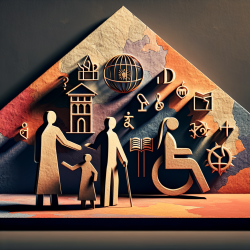Introduction
In the dynamic field of special education, practitioners constantly seek ways to enhance their skills and better support their students. Recent research from the Adolescent Brain Cognitive Development (ABCD) cohort provides valuable insights into the complex interactions between traumatic brain injury (TBI), neural processing, and alcohol experimentation behaviors in youth. By understanding these findings, practitioners can refine their approaches and contribute to positive developmental outcomes for students with TBI.
Understanding the Research
The study titled "Traumatic brain injury, working memory-related neural processing, and alcohol experimentation behaviors in youth from the ABCD cohort" explores the relationship between TBI and alcohol experimentation in adolescents. The research highlights the role of neural activity in the fronto-basal ganglia network, which is crucial for inhibitory control and working memory. This network's activity was found to predict increased odds of alcohol sipping among youth with TBI.
Key Findings
- Youth with TBI who exhibit increased blood-oxygen-level-dependent (BOLD) activity in the left frontal pole during working memory tasks are less likely to experiment with alcohol.
- Increased neural activity in the fronto-basal ganglia network correlates with higher odds of alcohol sipping, suggesting a complex interaction between TBI, neural processing, and risk-taking behaviors.
- The study underscores the importance of early intervention and targeted support for adolescents with TBI to mitigate the risk of alcohol misuse.
Implications for Practitioners
Practitioners can leverage these findings to improve their support strategies for students with TBI. Here are some actionable steps:
- Early Identification: Implement screening processes to identify students with a history of TBI and monitor their cognitive and behavioral development closely.
- Targeted Interventions: Develop personalized intervention plans that focus on enhancing working memory and inhibitory control, particularly for students exhibiting increased neural activity in the fronto-basal ganglia network.
- Collaborative Approach: Work closely with parents, therapists, and healthcare providers to create a comprehensive support system for students with TBI, addressing both cognitive and emotional needs.
- Continuous Learning: Stay informed about the latest research and advancements in neuroimaging and TBI management to refine intervention strategies continuously.
Encouraging Further Research
While this study provides valuable insights, it also highlights the need for further research to explore the long-term impacts of TBI on neural processing and behavior. Practitioners are encouraged to engage in collaborative research efforts and contribute to the growing body of knowledge in this field. By doing so, they can help develop more effective interventions and support mechanisms for students with TBI.
Conclusion
The findings from the ABCD cohort study offer a promising avenue for enhancing practitioner skills in supporting youth with TBI. By understanding the interplay between TBI, neural activity, and risk behaviors, practitioners can implement targeted interventions that promote positive developmental outcomes. As we continue to explore this complex field, collaboration and continuous learning will be key to unlocking the full potential of students with TBI.
To read the original research paper, please follow this link: Traumatic brain injury, working memory-related neural processing, and alcohol experimentation behaviors in youth from the ABCD cohort.




